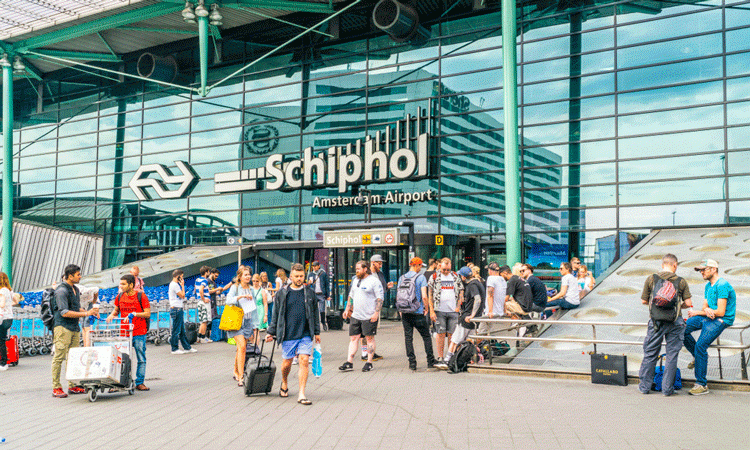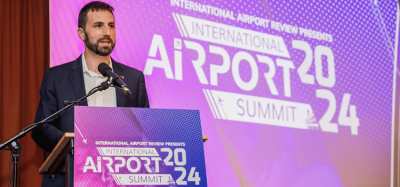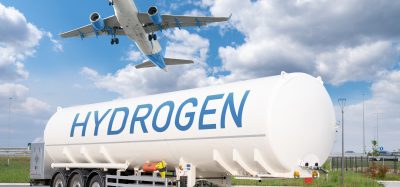CEO of Schiphol Airport says ‘zero-emission aviation is mission possible’
- Like
- Digg
- Del
- Tumblr
- VKontakte
- Buffer
- Love This
- Odnoklassniki
- Meneame
- Blogger
- Amazon
- Yahoo Mail
- Gmail
- AOL
- Newsvine
- HackerNews
- Evernote
- MySpace
- Mail.ru
- Viadeo
- Line
- Comments
- Yummly
- SMS
- Viber
- Telegram
- Subscribe
- Skype
- Facebook Messenger
- Kakao
- LiveJournal
- Yammer
- Edgar
- Fintel
- Mix
- Instapaper
- Copy Link
Posted: 20 September 2019 | International Airport Review | No comments yet
Schiphol has taken significant steps towards making the aviation industry more environmentally friendly, but have acknowledged that the pace of progress towards sustainability needs to be increased.


Red Schiphol Campaign has been launched to unite opposing unions to the Dutch governments flight cap.
“International aviation needs to embrace the ambition, in line with the Paris Agreement, of achieving net zero emissions by the middle of this century” said Dick Benschop, CEO of Royal Schiphol Group, as he delivered the annual Airneth lecture for aviation professionals and policymakers. Benschop stated that significant steps have already been taken, but that the pace of progress towards sustainability needs to be ramped up. ‘There will need to be better cooperation between the government, the industry and knowledge institutions if the targets are to be met. Innovation, investment and policy will have to bolster each other. At present, this is insufficiently the case.’
Mission possible
The first question that Benschop raised is whether it is feasible for aviation to be made more sustainable. Aviation currently accounts for two to three per cent of CO2 emissions worldwide, but the relative proportion is set to increase. Benschop referred to the ‘Mission Possible’ report of the Energy Transition Commission. This sets out three routes for the sustainability drive, with various time frames:
- Managing aviation demand better: Through opting to travel by train rather than by plane for shorter journeys and through ensuring smarter flight paths and better organisation of airspace. This could drive down CO2 emissions by 15 per cent
- Improving the energy efficiency of aircraft: Through developing more efficient aircraft engines and more efficient aircraft. This has the potential to reduce CO2 emissions by 30–45 per cent
- Making fuels more sustainable: Through the use of synthetic kerosene, biokerosene and hydrogen as aircraft fuels and through electric planes. This could drive down CO2 emissions by 100 per cent
Schiphol’s role
Amsterdam Airport Schiphol itself is climate-neutral and aims to achieve net zero emissions by 2030. Thermal energy storage, solar energy, circular construction and electrification of transport will play an important role in this respect. Thanks to these developments, the airport will make a significant contribution to the Netherlands’ target of reducing CO2 emissions by 49 per cent by 2030. Furthermore, Schiphol wishes to play a proactive role in driving down emissions from transport to and from the airport and in reducing the emissions of the airport itself. Turning Schiphol into a multimodal aviation and high-speed rail hub is an example of this approach, as are efforts to encourage the use of public transport by working towards the extension of the North-South line on the Amsterdam underground.
Smart and sustainable
Significant steps have already been taken in the Netherlands with the Smart & Sustainable action plan and the draft climate agreement for sustainable aviation. Benschop said; “We’re practising what we preach. KLM has started to replace flights to Brussels with the HSL. Investments are being made in innovation. Schiphol Group is also investing in the development of synthetic kerosene at Rotterdam-The Hague Airport, and in conjunction with KLM, SkyNRG and SHVenergy, the airport group is investing in a biokerosene factory in Delfzijl, which is capable of producing sustainable fuel from waste flows.”
International policy
“However, greater effort is required at the international level. Which policies can we implement to encourage the development of sustainable fuels and electric flying? And how can we maintain our competitive position and the level playing field?” Benschop wondered aloud. “The point of departure is that the external effects and costs of aviation have to be internalised. Prices need to reflect the truth. A start has been made by incorporating flights within Europe into the European Emissions Trading System (EU-ETS). CO2 credits are now required for these. That said, this CO2 surcharge does not yet bridge the difference in cost: Biokerosene is two to three times more expensive than fossil kerosene. We need an open debate on what else is required. A ticket tax will not be an effective tool, because there is no direct relationship with emissions. Do we need to start considering a kerosene tax or mandating the use of sustainable fuels? I would contend that we need to compare the pros and cons of these approaches.”
Benschop argued that three criteria are essential in this regard:
- The tool will have to have some relationship with emissions (and therefore reward improvement)
- The tool will need to contribute to investments in increased sustainability (funding)
- The level playing field for Dutch aviation must remain intact. This will require careful consideration of the scale on which measures can be taken.
Zero CO2 emissions from aviation by the middle of the century
Schiphol will be doing its utmost at the international level to expedite the process of making aviation more sustainable. “The aim is to be zero-emission by the middle of this century,” Benschop vowed. “This should be within reach. We’re already speaking with other European airports about how we can internalise external environmental costs and we’re pressing the international aviation organisation ICAO on tightening up the targets.”
According to the Schiphol Group CEO, the Netherlands should play a pioneering role when it comes to more sustainable aviation. “Pioneering and innovation are in our blood. The aviation sector, the business community and knowledge institutions now have a unique opportunity to get the Netherlands to play a pioneering role.”
Related topics
Emissions, Sustainability, Sustainable Aviation Fuel (SAF), Sustainable development


















